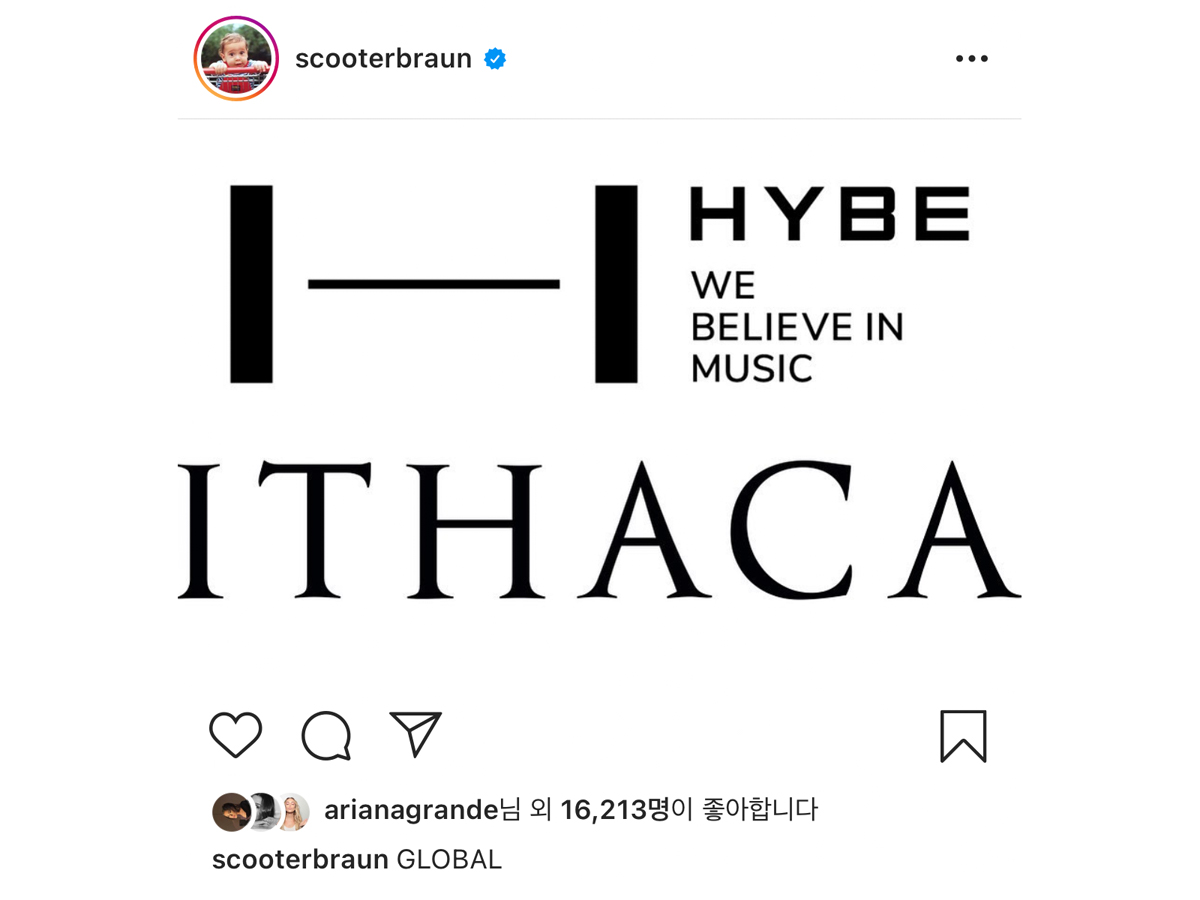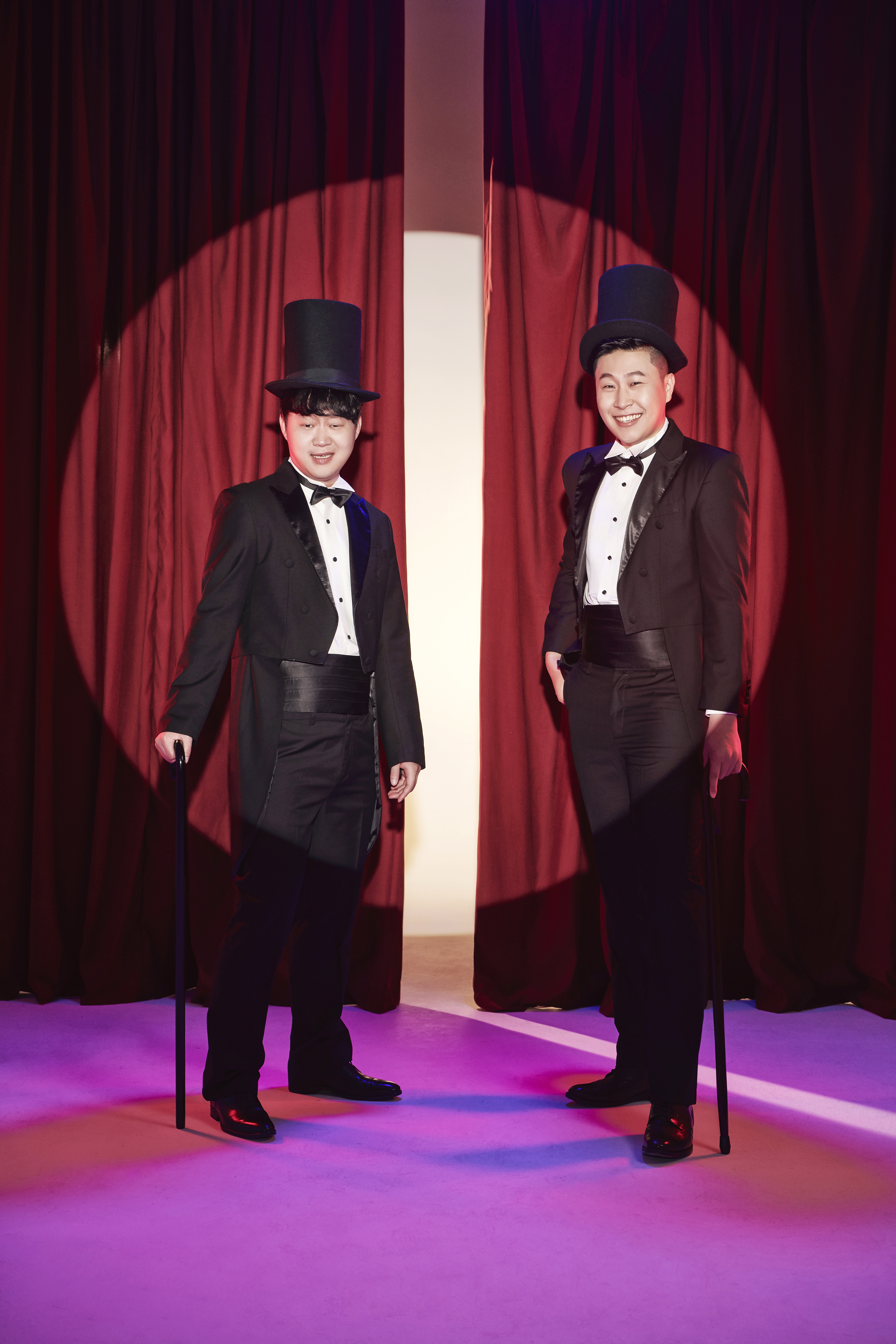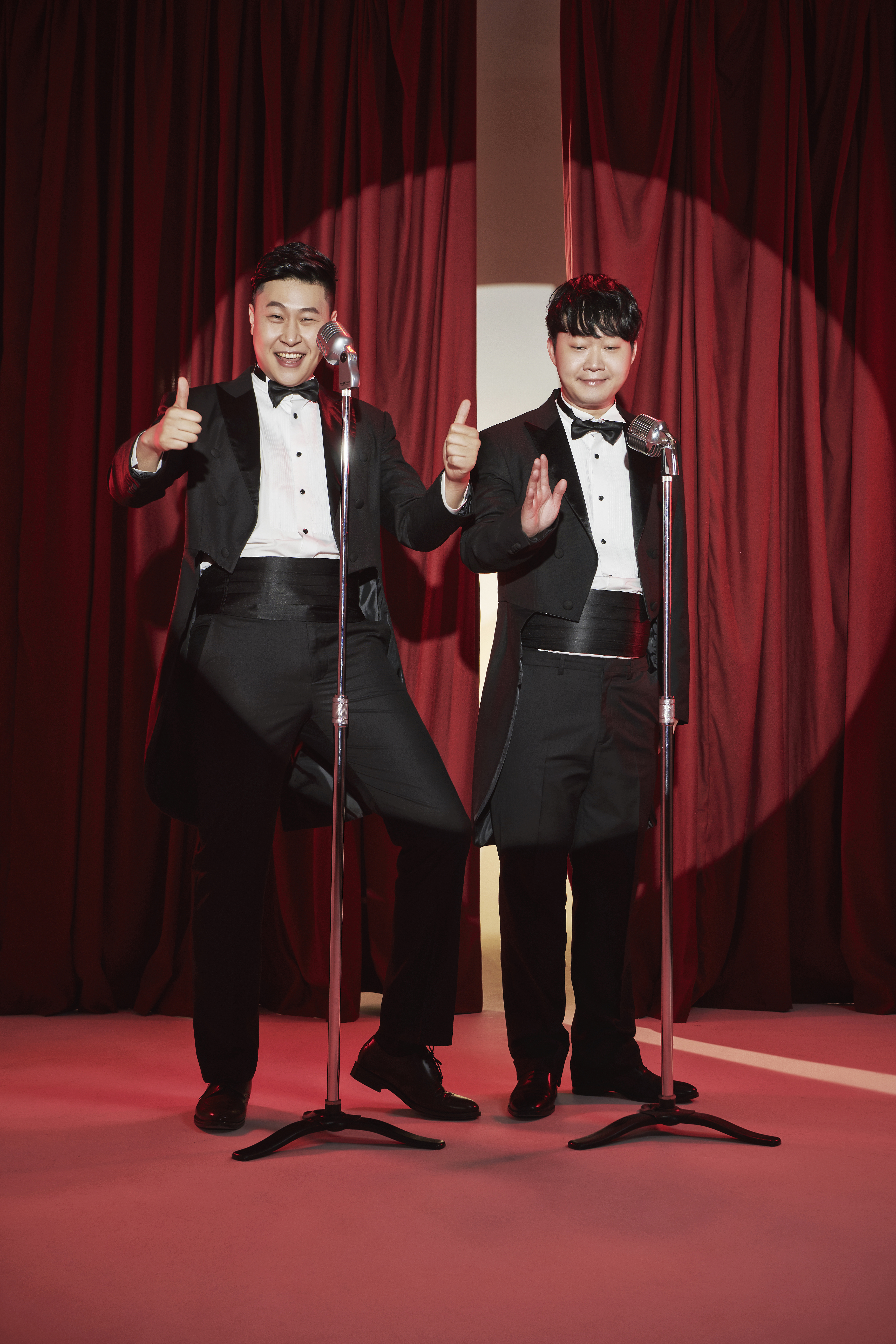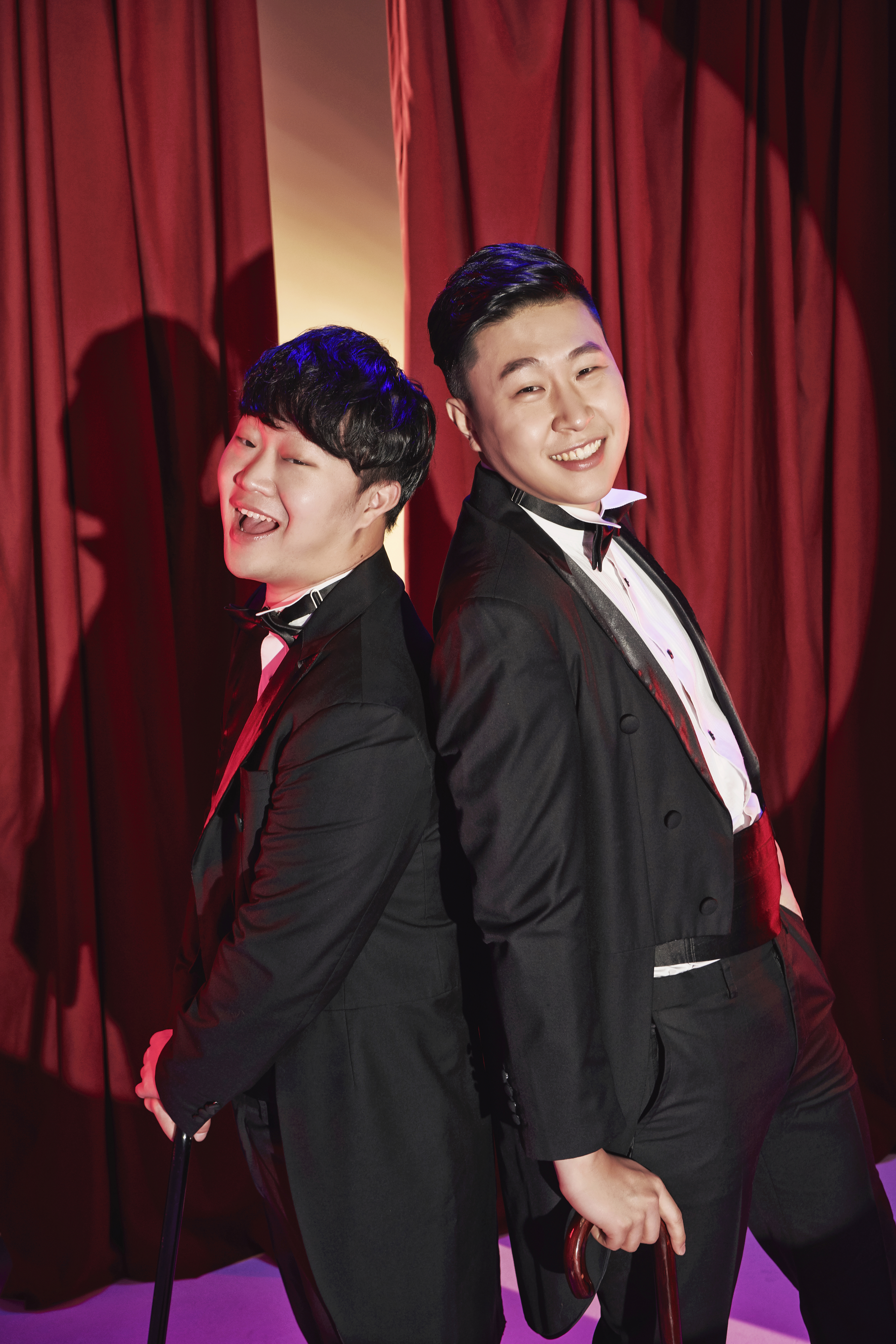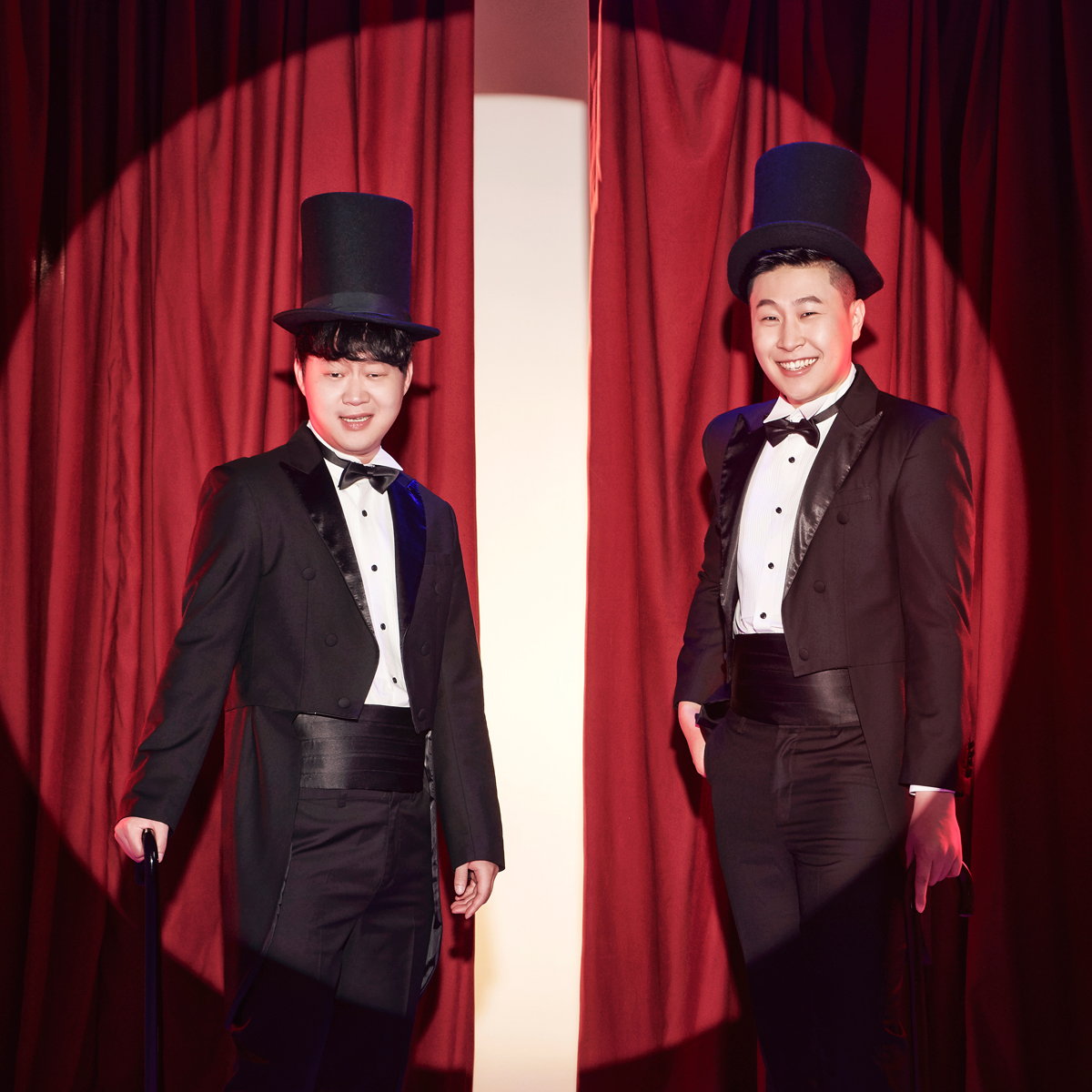
One video has received an unexpected amount of attention lately: a cover of Justin Bieber’s song “Peaches.” Snoop Dogg uploaded a snippet of it to his social media, and the full video really picked up steam when BTS’s Jung Kook imitated it during the group’s Butter unboxing video. The stars of the cover video, which currently sits at 6.28 million views, are Lee Yong Ju and Jung Jae Hyung, creators of the comedy channel Psick University. In an extension of Psick University’s Hansarang Alpine Club segment called Hansarang Music Club, the two comedians accurately portray two middle-aged men haphazardly covering popular songs like “Peaches” and “Butter” in front of a video screen reminiscent of those found in Korean karaoke rooms. Several of Psick University’s hyperreal segments have attracted many people on the basis of how perfectly the troupe embody their characters, leaving a question mark about whether they are comedians or full-fledged actors. The fictional world connecting the characters throughout the various sketches has become known as the Psick Universe. I asked the two comedians, who have moved on from comedy TV shows and standup to make new comedies on YouTube, about the state of comedy in 2021. The two rigorously upheld the Psick Universe throughout our interview together.
You made headlines when BTS’s Jung Kook briefly imitated your cover of “Peaches.”
Jung: Mr. Bae Yonggil [the middle-aged first-generation immigrant in America Lee plays in Hansarang Alpine Club] and Mr. Jung Gwangyong [the real Jung’s middle-aged physics teacher character in the same series of sketches] are very proud of BTS. They’re the main Koreans to have enhanced our national image in America since Johnny Yune broke into the market, so they said they’re really proud and would like to at least buy them dinner.
Lee: They asked them to send their bank account number. (laughs) To send them some pocket money. Please let them know.
Snoop Dogg uploaded your cover of Justin Bieber’s “Peaches” to his social media account.
Lee: Mr. Bae started using YouTube to communicate with young folk, and he’s very happy he’s now becoming world famous.
Jung: Mr. Jung doesn’t know what’s happening these days. (laughs)
I realized that people really like the way you pronounce English confidently with a middle-aged Korean man’s accent.
Lee: Mr. Jung and Mr. Bae acquired the English language in different ways. Mr. Bae moved all the way to the States around 1980 and picked up the English spoken by overseas Koreans while adjusting to immigrant life.
Jung: You could say it’s the authentic English that you have to learn to survive—English you can use right away, rather than obsessing over grammar or other stuff.
The videos of these two older men singing always include Korean lyrics. How does the process of transforming explicit lyrics into beautiful Korean ones work? The lyrics, “I get my weed from California,” became, “Going to Tongyeong beaches with you / Drinking Boseong green tea with you.” (laughs)
Jung: Mr. Bae says, This is what the lyrics are about, and boils them down for Mr. Jung, who lines up the cadence and phonetics to produce a pitch-perfect translation. (laughs) You can look at it as being conceptually similar to a poetry recital. It’s intended to convey the meaning of a young person’s song to other people of the mens’ generation.
How did the lyrics in Silk Sonic’s love song, “Leave the Door Open”—“I’ma leave the door open, hopin’ ”—end up becoming, “Come on out to Sooni’s Pub, open”? (laughs)
Lee: Mr. Bae and Mr. Jung are regulars at Sooni’s Pub in Mapo-gu. It’s a real place in the Donggyo-dong neighborhood. This isn’t a promotion or anything, but they’ve got dried herring and other bar food that middle-aged men like. What I’m telling you is, like the lyrics say, “Come on out here.” (laughs)
A picture of the real pub shows up in the background of the video when you sing that part. (laughs) Mr. Bae also filmed and edited “Club President Kim Yeongnam’s Medicinal Neungi Mushroom & Chicken Stew Mukbang” for Hansarang Alpine Club a little while ago, with captions flying around and a really fancy editing job. (laughs)
Lee: Mr. Bae brought together everything he’s learned so far to make that video. (laughs) At first he was learning editing at the community center, but he felt that wasn’t enough to spread out his wings, so now he’s learning it properly, step by step, from Mr. Kim’s son, Kim Minsu [a member of Psick University]. (laughs) The quality of the editing will probably get better as time goes by.
Jung: He always forgets everything he learns, so he has to teach him again. (laughs) That video’s a favorite among the Hansarang Alpine Club members, too. They said they’re happy they finally have a producer in the group. (laughs)
It's rather exceptional for middle-aged people to be so active in the YouTube ecosystem and even edit their own videos, and to become popular.
Jung: Everything is so polarized these days. Understanding between people of different genders and ages is becoming increasingly difficult, and some people say the older generations are too preachy. I feel like we’re the soap to that conflict, helping oil and water to mix. People are looking up the videos on YouTube, even people from foreign countries, having fun and laughing together as they watch people from the older generation. Mr. Jung and Mr. Bae are both very proud.
Lee: We’re losing the opportunity to meet other people face-to-face as we focus on communicating online more and more during this era of the new normal. It reduces your ability to understand and sympathize with other people, but through YouTube you can observe how other people are living, even people from other countries, and what they think, and that helps you to realize how different things can be.
While YouTube does serve a positive function, it can also be misused to make a profit off fake news or hateful videos about other people. I apologize if this question shatters your universe (laughs) but how is Hansarang Alpine Club able to realistically satirize these aspects of middle-aged men as sympathetically as it does?
Jung: We’ve been working on that since our standup days. Nothing is sacred in the world of comedy, but we ended up doing this after thinking about subject matter that’s accessible and everyone can relate to instead of overly deep or explicit. I think it’s in line with the popular sentiments of the era. Personally, I hope people develop a broader understanding of comedy as a genre. I hope someday comedy will come to be understood for its wit, not as inciting so-called ridicule, put-downs, or hatred towards others.
Lee: I never thought to fill people with innocuous laughter, but that’s the way people see it. My intention was only to reflect the real world through hyperrealism. Rather than choosing something endlessly funny, I wanted to select something where there’s conflict or taboo, or where there’s difficulty in communicating. And showing reality hyperrealistically was our way of expressing that. Before we started Hansarang Alpine Club, if you searched “alpine club” on YouTube in Korean, the only thing that came up was love affairs. People are always focused on scandals and gossip no matter what. But the people who go to alpine clubs are our parents, and that’s not the only thing that goes on there, and we didn’t want to reflect only that, so we decided to show the people who are really there just the way they are. When you search for “alpine club” now, keywords like “love affair” don’t really come up anymore, and things like Hansarang Alpine Club or “parent and kid life” come up.
Jung: What you see in the media and the press is just the tip of the iceberg. For the sake of ad views and profit, you have to deal in sensational and unrealistic situations so that people will click on your videos. But we saw the rest of the iceberg. Seeing as we live in a world where sensational subject matter gets clicks easily, we needed time to build up our plot by investing the time and energy. I feel like life itself has become an inspiration in that regard. We made another Psick University series, Class of ’05 Is Back, because of things we like and know well due to being in our thirties.
But if the adults in Hansarang Alpine Club are so hip, why are the styles and sensibilities of their sons in Class of ’05 Is Back stuck in the 2000s? (laughs)
Jung: The kids in Class of ’05 Is Back look back on their memories of the 2000s, which people in 2021 consider to have been shameful and see as corny, and remember themselves actually being romantic and really cool back then. The dads in Hansarang Alpine Club, though, are older, and that’s why they changed like that—they’re probably trying to be closer to what kids are doing these days. (laughs)
Class of ’05 Is Back is an authentic depiction of thirtysomething men who, even in 2021, hold on to the same fashion and ideas they had in the 2000s. B-rated Online Date is another realistic portrayal, this time of men on blind dates, which really took off this year.
Lee: All of our series have something in common, in that regard. The “B” in “B-rated” implies a lot of different things, including a collection of all the people you want to avoid on blind dates. But there’s only a low chance of attractive people like the ones on TV showing up on a real blind date. We tried to show only the most ordinary, realistic people possible. And we show how they have their downsides, but that they have their reasons for them, and that they have good traits, too.
Jung: I honestly think the reason people laugh at the videos at the same time that they dislike them is because we’re all those people. Everyone goes, “Ugh, no thank you!” But we’re all like that at some point. (laughs)
I also think that, in its pursuit of hyperrealism through its videos, Psick University is breaking down comedy barriers. For example, the video of the table read for Rustic Period Sidequel, a parody of the 2002 TV show Rustic Period, is so realistic that people could mistake it for the making-of video of a real show. (laughs)
Jung: We’re living in a world where the distinction between music, TV shows and movies is disappearing. And comedy can easily be incorporated into any of them, so it’s sort of an ambiguous genre. But I think our approach is not to rush into making people laugh. The skits that the comedians on the public TV networks’ shows were putting on were more or less spoon-fed gags. It was like saying, This is the part where you laugh! But you don’t have to bother with that on YouTube, since people leave comments saying, This part’s funny! And share it around.
The characters from different Psick University sketches are connected within one fictional universe, such as the middle-aged characters in Hansarang Alpine Club and their thirtysomething sons in Class of ’05 Is Back, so fans have come to nickname it the Psick Universe.
Lee: So, at the beginning, we thought that if we revealed the whole world we thought up at once, people wouldn’t get it, and we kept adding little elements one by one to make ourselves laugh, but people actually caught onto that really well. The public’s level of understanding is really high. They couldn’t invest in anything because there simply wasn’t any comedy with detail and depth. Our subscribers understand all our characters’ personalities and relationships, organize mind maps, and pick up on all the foreshadowing we drop. It’s truly amazing.
Jung: Comedians often talk to each other about so-called “pro sense.” It means that only pros notice certain details. It’s not funny to the general public, but we laugh about it among ourselves. But the public actually already know about pro sense. As we entered the communication era, we found out what the viewers know and understand about, too, and I think we started to make content with them in mind when considering our ideas.
The enthusiastic love and communication you have with your fanbase, the Psick Fam, feels like it would be a part of that collaboration.
Jung: As I said when I was doing standup, as well as on social media, I hope comedy will have its own fan culture and stars someday. Surprisingly, though, a lot of people became fans right from our very early stages. Even before our videos went viral, the fans came one by one, and now they’re more than just a university, as the name Psick University would suggest, and have become a collective who give us their support. The four of us—including Kim Minsu, who we do Psick University with, and Kim Haejun, who played Choi Joon on B-rated Online Date as a guest—will be going to the Busan International Comedy Festival, and an official for the festival told us the tickets sold out within a minute. They said it’s the first time in nine years. I feel so grateful. Psick Fam forever—really. (laughs) Thank you for having fun at Psick University, the university of your hopes and dreams, and I hope the Psick Fam at Psick University will grow to a million, 100 million, six billion members and keep having fun.
Lee: I didn’t really get fan culture before, but now that I’ve experienced it, Psick Fam like everything about me, even things that I had no idea about. They understand why we make our content the way we do, and even when it occasionally doesn’t make sense right away, they wait for us anyway. My whole heart goes out to them. Since I’m the oldest in Psick University, the fans jokingly say it’s my retirement plan or that they’ll send me to a fancy retirement home. They’re constantly poking fun of me, finding bad photos of me and photoshopping them. (laughs) I enjoy the whole process. I hope we can grow older together, living our lives together until we go to that expensive retirement home for real.
I think you’ve forged a new path for comedy that’s never been seen before thanks to Psick University. I recall you said in an interview with Toss that you want to “pave the way” for younger comedians.
Jung: I didn’t set out with the idea to make a new path. I’ve come upon a weird and very curious path just through living my life every day. If things had gone as planned, I would’ve been a successful standup comedian, but it turns out it was thanks to YouTube that all these people ended up knowing who we are. So I think, maybe other people don’t have to follow in our footsteps; if they can mess up and fail in all kinds of weird ways, and keep trudging along, the result will be a variety of different comedy. So there’d be people saying, Psick University went off and got successful that way, but we didn’t do that and we still found success. That way we’ll see it and the motivation will have us all creating good synergy together. I don’t like the word veteran, but if you think about it, veteran means showing them different paths like that and plowing ahead first.
It can’t be easy heading down a road that no one’s ever traveled.
Lee: Every day makes me excited and nervous. I was taught by the major broadcasters that the standard procedure was to follow the path taken by the comedy vets before me, but by avoiding that path I got to do something no one had ever done before. So every day is really fun. And I think I’ll continue to choose only those things, too. We don’t have any grand design for what direction to take. (laughs) Every day I just think about what to post.
Jung: To be honest, no matter what we say in this interview, nothing’s going to go as planned, anyway. (laughs) Just like rising stocks, I think comedy could change and take an upward turn, and there could be a rise in the size of the market, too. Or maybe not. (laughs)
Unauthorized reproduction and distribution prohibited.
- The Power of BTS’ Music2021.07.21
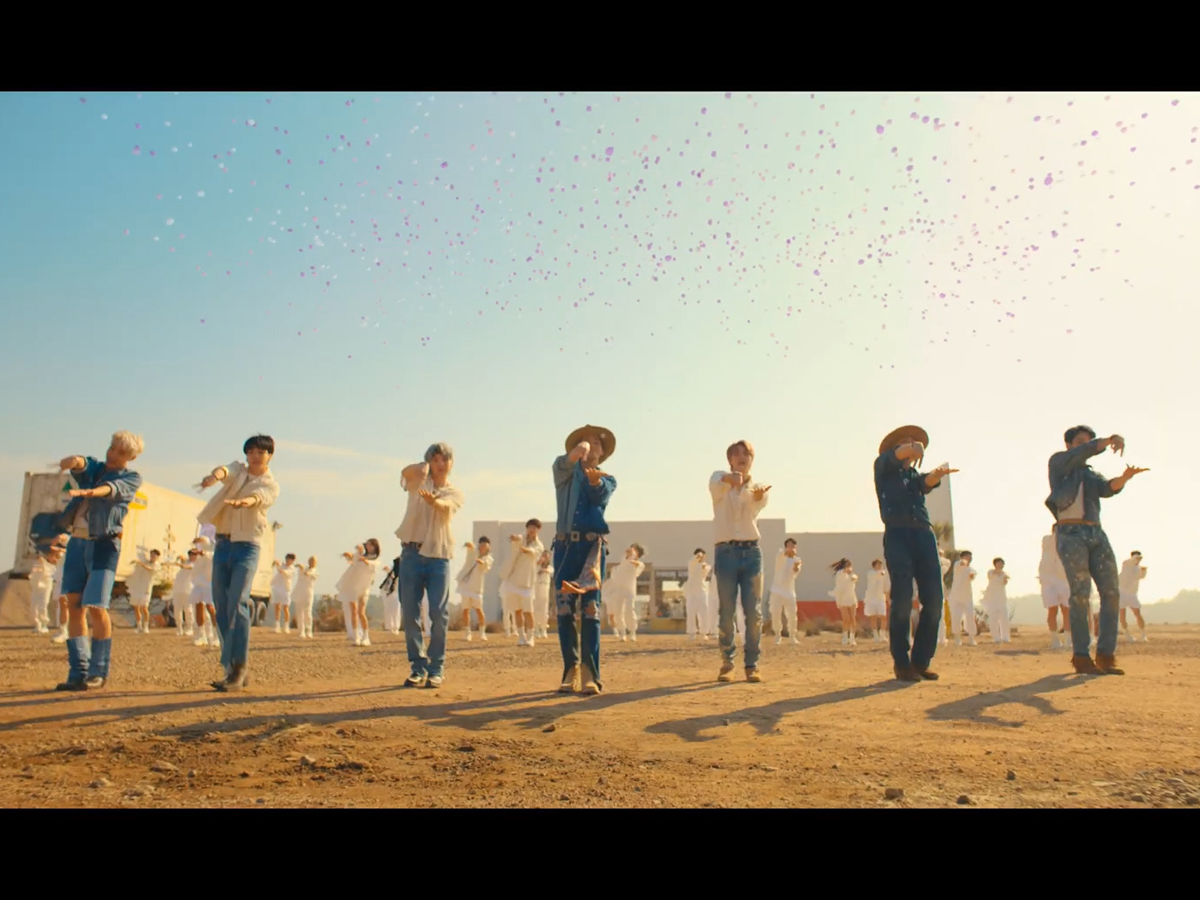
- Talking Music with “Butter”2021.05.26
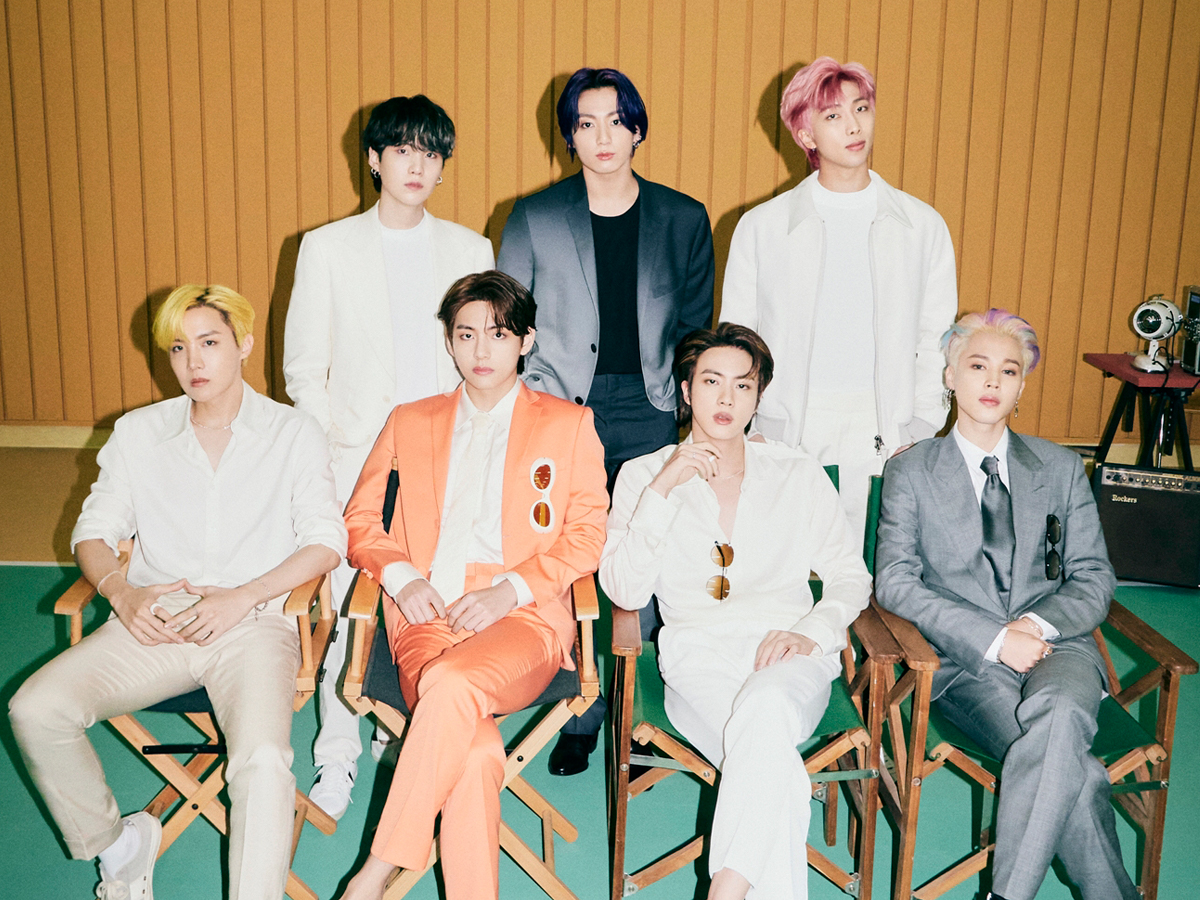
- BTS and Bieber under the same roof2021.04.07
